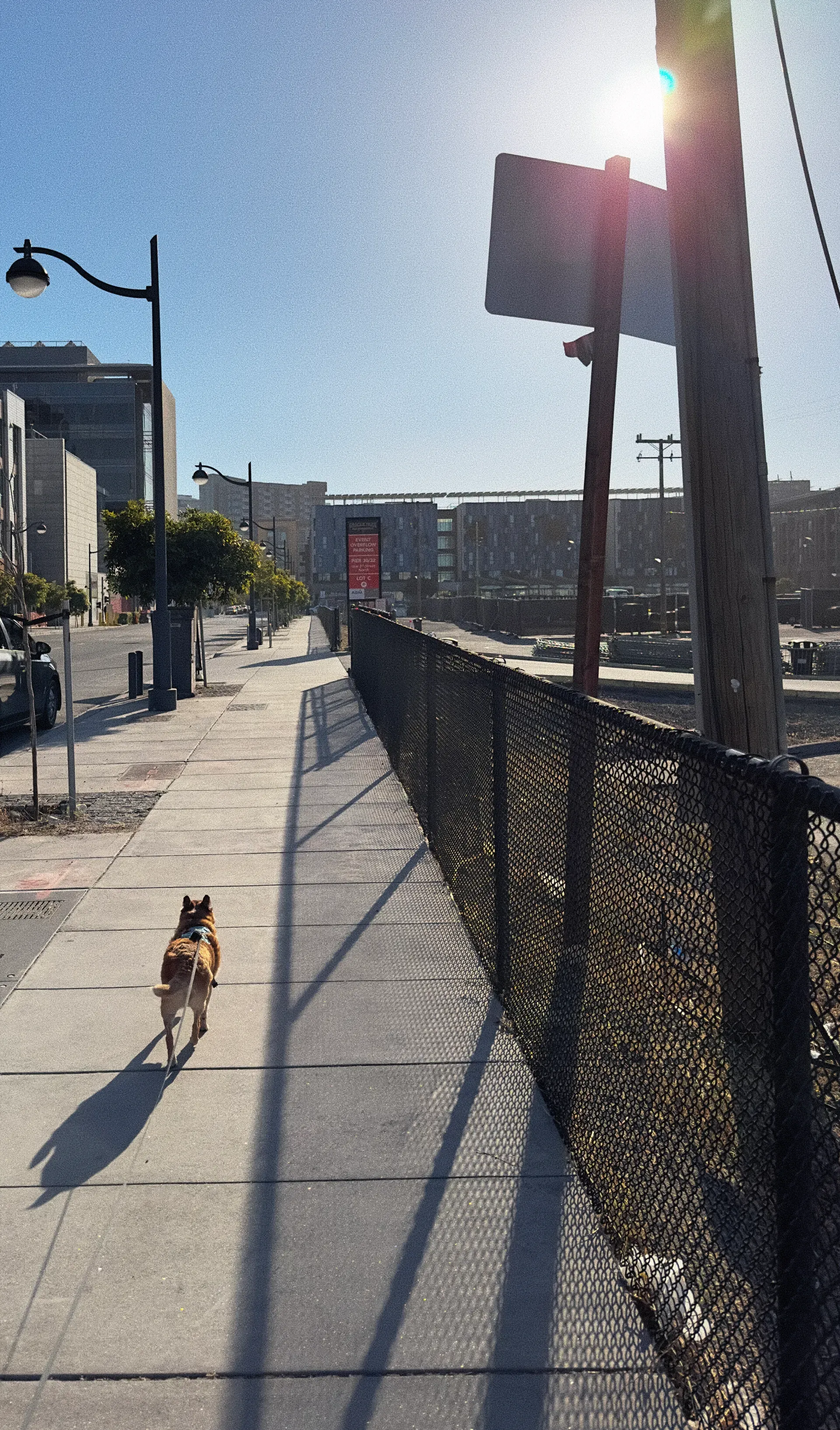There’s Probably a Metaphor for Business Leadership or Scientific Research in Here (rwblog S6E8)
Last updated: 3/10/2025 | Originally published: 7/29/2023
Currently listening to: The Loveliest Time, Carly Rae Jepsen1
Aight this is a short one — buckle up.
Table of Contents
Open Table of Contents
Calendrical and Cartographic Thinking
It’s a well-known trope that tools shape our thinking (see ”Notational intelligence”, “Notation as a Tool of Thought”, etc). So here’s another example.
A friend is coming from out of town next week and we were trying to coordinate lunch. As a result, I was rapidly switching between my calendar and a map, to decide on a time and a place. What I found interesting, though, is that I also felt like I was switching between different ways of thinking — call them calendrical and cartographic.
In calendrical thinking, I was focused on fitting time into blocks like a Tetris game of life, while in cartographic thinking, I was focused on exploring what was around her hotel. For lack of a better term, I found myself thinking “vertically” in the calendar — perhaps because iCalendar uses strict vertical day boundaries — and “horizontally” in the map — perhaps because Apple Maps involves horizontal scrolling. And these felt very different! Looking cartographically, I was thinking about how far a restaurant was, but not strictly about how long it would take to get there, while the opposite was true thinking calendrically.
What was especially interesting is that, in iCalendar, if you add an address, you get a little Google Maps popup at the bottom of the event that shows the surroundings. That little affordance provided a way to “toggle” between the two types of thinking easily, though as far as I’m aware there’s no backwards affordance from Apple Maps to iCal.
Anyway: what other “types” of thinking might be out there, powered by tools? Spreadsheetically thinking, perhaps?

Agelasty
Update: I ended up writing an entire article epxloring this concept! Farmers & Foragers
I read a quote from recently-deceased not-a-Nobel-Prize-winner Milan Kundera that resonated with me, though I’ve never read another word by the man:
There are people whose intelligence I admire, whose decency I respect, but with whom I feel ill at ease: I censor my remarks to avoid being misunderstood, to avoid seeming cynical, to avoid wounding them by some frivolous word. They do not live at peace with the comical. I do not blame them for it; their agelasty [literally “laughlessness”] is deeply embedded in them, and they cannot help it. But neither can I help it and, while I do not detest them, I give them a wide berth.
(via Alan Jacobs, who is that rarest of birds, a thoughtful American conservative. I really liked his Breaking Bread with the Dead, which is a well-argued little book that supported by decision to spend a bunch of time reading The Classics™️)
My understanding is that Kundera was not a particularly political writer and didn’t have much to say about either communism or capitalism, hence perhaps the Nobel committee’s snub.
In any case, I too certainly feel ill at ease among some persons I admire and respect. I sometimes refer to myself as a fundamentally unserious person, but perhaps it is more accurate to call other people fundamentally serious people, who, as Kundera suggested, do not live at peace with the comical. It is sometimes difficult for me to explain that the opinions I share are not necessarily my own; that, in fact, I do not hold opinions at all, on many topics.
Indeed, I feel like agelasty may be one of the deeper personality differences — I wonder where it fits into OCEAN or MBTI? 🤔 — and I certainly at times feel more kinship with historical writers of the Ovid and Voltaire varieties than some of my contemporaries, regardless of the temporal distance. Always there are those taking life seriously, very seriously indeed, and those who are not — it is not hard to find either if you look.
Doubling Back
A thought I had recently when I was biking home from work:
I often bike two blocks west to get to the grocery store on the way home from work. After leaving the grocery store, I can either go back east to get back to my usual route home, or I can go directly home on a less bike-friendly route.
Previously, I would almost always bike back the two blocks east, groceries in tow. However, I recently started taking the direct route home, because of this thought: if I double back, I don’t just lose the two blocks going west to get to the grocery store, I also lose the two blocks to go back east, then I lose two more blocks going west that my usual route includes. So, in a certain sense, doubling back is not just double as bad, but in fact three times as bad.
There’s probably a metaphor for business leadership or scientific research in there. I dunno, you can do the work of figuring it out.
Okay That’s Enough
I think the subheadline says it all, right? You deserve a Rooibos picture.

Footnotes
-
Album of the year?? ↩